What are Popcorn Buds and How to Avoid Them
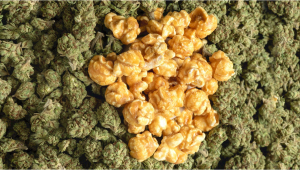
- 1. What are popcorn buds?
- 2. What actually causes an excess of popcorn buds?
- 3. How to avoid them?
- 3. a. Provide the optimal growing environment
- 3. b. Low stress training
- 3. c. High stress training
- 3. d. Pruning and/or trimming
- 4. What to do with popcorn buds?
- 5. In conclusion
Popcorn buds are the smaller flower formations that develop on the lower branches of the cannabis plant. They are not full-grown flowers and often have a hairy and fluffy appearance. If you want to prevent pop corn buds when growing your next cannabis seeds, read along!
1. What are Popcorn Buds?
Popcorn buds are those tiny fluffy flowers that don’t quite develop like the denser main flowers. Usually, the popcorn buds are situated on the lower bud sites of a cannabis plant. That is because when growing bushy or tall plants sometimes the excess growth or big fan leaves can shade and keep light from reaching them, this way the bud sites don’t get enough light and don't develop well. If you know anything about growing plants, then you’ll be aware that light exposure serves as the single most important modifiable variable to optimal growth. Therefore, it makes sense that flowers that don’t get much light don’t develop ideally. Not only are they smaller, but their cannabinoid and terpene profiles often lack, too. This is because plants convert light into carbohydrates, and they further break down this energy source into small molecules that catalyze reactions.
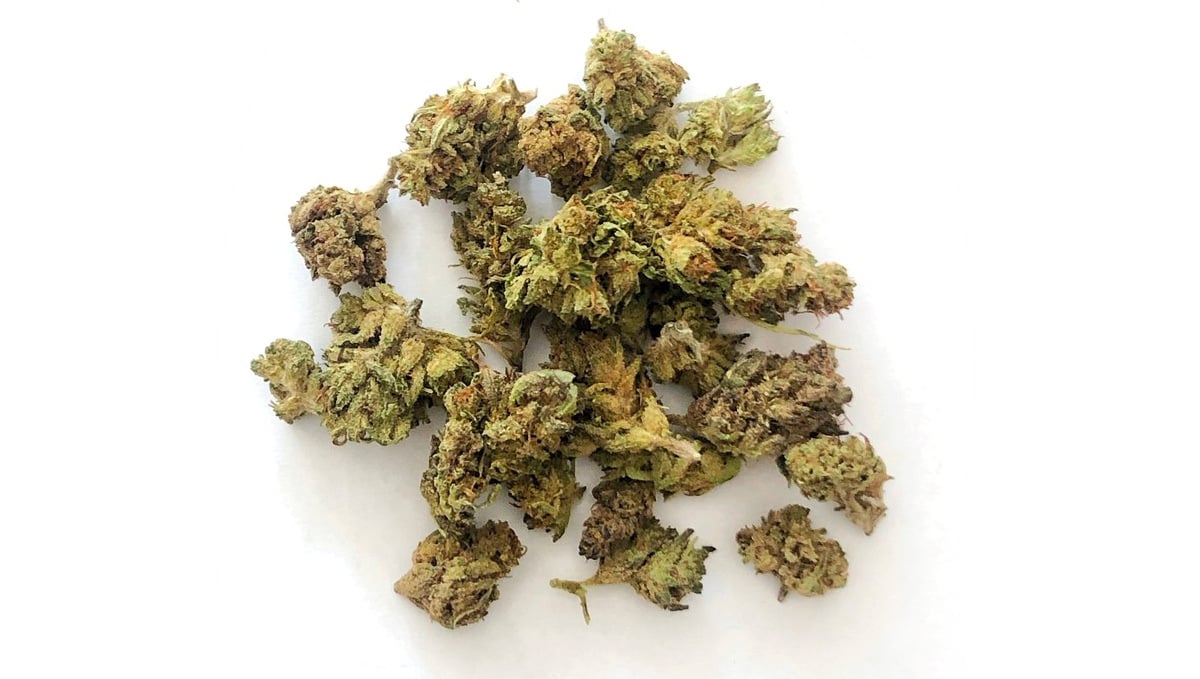
Cannabinoids, terpenes, and growth themselves stem from these reactions. Because fewer of them occur in so-called “popcorn buds”, they’re inherently less desirable than the larger and more resinous buds near the top of the canopy. Thankfully, there are proven ways to avoid these small buds and ensure flower uniformity. Even though the quality of your flowers will be the same, they certainly won’t look the same. Popcorn buds are usually considered B-grade flowers because of their fluffy and airy consistency. Whether they are too small, too leafy, or too hairy, growers tend to avoid these smaller flowers.
2. What Actually Causes an Excess of Popcorn Buds?
There are a couple of factors that go into the over-production of popcorn buds. Genetic factors certainly play a role, especially when it comes to plant structure, shape, and canopy density.
However, plants of the same strain can produce more or fewer popcorn buds based on environmental variables that can increase the odds of their manifestation. Stress is the number one enemy of any cannabis grow, and can be caused by a number of factors including:
- Poor environmental control
- Too many plants sharing the grow area
- Excessive or too little feed water
- Disease
- Pest issues
- Overtraining
3. How to Avoid Them?
There are different ways to avoid the underdevelopment of lower buds. If your plants are too bushy, have too big fan leaves or are growing too tall, you can use the following techniques:
Provide the Optimal Growing Environment
What’s the point of going to all the effort of growing your own weed if the results are going to be disappointing? Before trying any cultivation techniques, you need to ensure the plants are growing in an environment that is beneficial and is providing everything they need. This includes proper light, adequate airflow through the canopy and air exchange in and out of the grow space, correct temp and humidity ranges, and a properly pH’d and measured feeding schedule. To promote the growth of popcorn buds, in particular, you need to allow the light and airflow to actually reach the lower budding sites.
This may mean that removing some of the larger, lower fan leaves could well be in you and your crop’s favor. You can also add a few oscillating fans at canopy level. It is best to point this at slightly different angles, with one below pointing up, one at canopy level pointing directly through, and one above pointing down. This ensures the humidity and temperature levels stay constant throughout the entire grow area, and no pockets of wet and warm air sit around the popcorn bud sites.
Low Stress Training
Low Stress training is a technique that involves tying down or using a net to even canopy level, doing this allows light to reach all bud sites equally so they develop even and avoid the underdevelopment of buds.
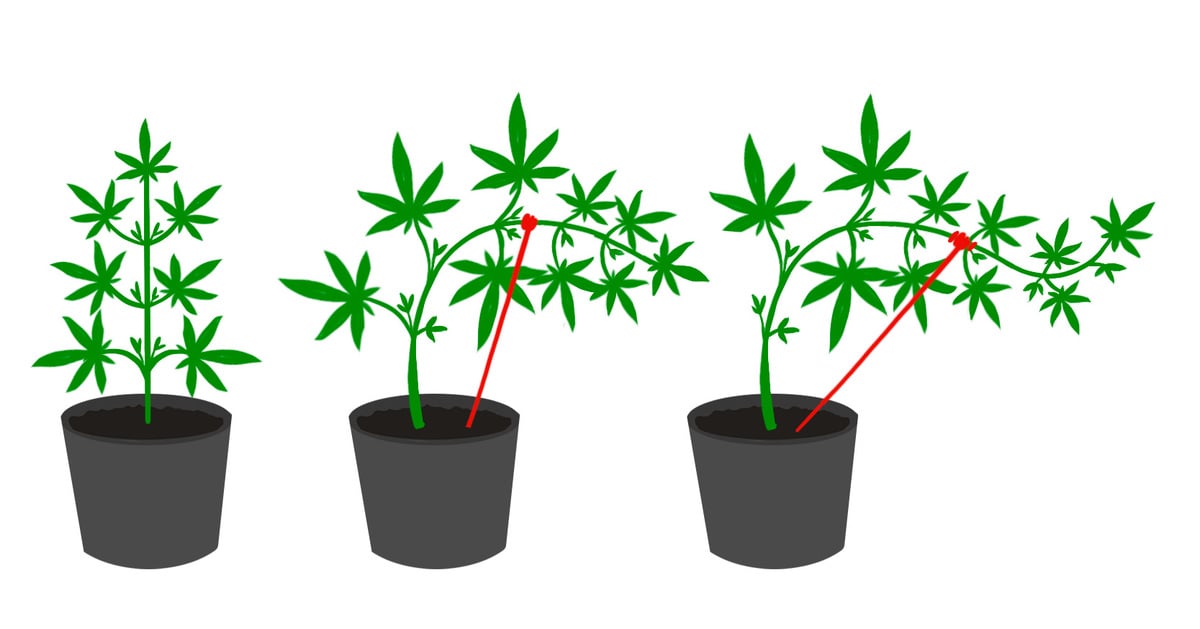
This method usually takes a lot of work because you have to train your plant little by little every couple of days to have good results. LST also vastly changes the structure and growth pattern of a plant. Under normal circumstances without the intervention of a grower, cannabis plants grow in a Christmas tree-like manner and form one large central cola flanked by myriad smaller buds. LST changes this. The method involves tying down the growing tip of plants.
This causes the side shoots to start growing vertically, which then creates a canopy populated by many smaller buds that all share a uniform size and shape. Throw in some defoliation, and you’ll end up with an open and even canopy that receives an equal amount of light intensity. This exposes would-be popcorn buds to enough light to allow them to fulfill their genetic potential and become the swollen and resinous buds that they were born to become.
High Stress Training
High-Stress training is the most aggressive method, you damage your plant directly by removing or mutilating the stems to achieve a more even canopy. This way there are no lower branches and all buds receive the same amount and intensity of light. When done correctly, this method takes usually 3-4 times to achieve good results so it takes less work than LST but can seriously shock your plants if done aggressively.
Pruning and/or Trimming
Pruning or trimming consists of plucking off any number of fan leaves to remove the plant material that is shading the lower branches and lower bud sites, this is a slightly more aggressive method than the ones said above and can shock your plants if you don’t do it carefully.
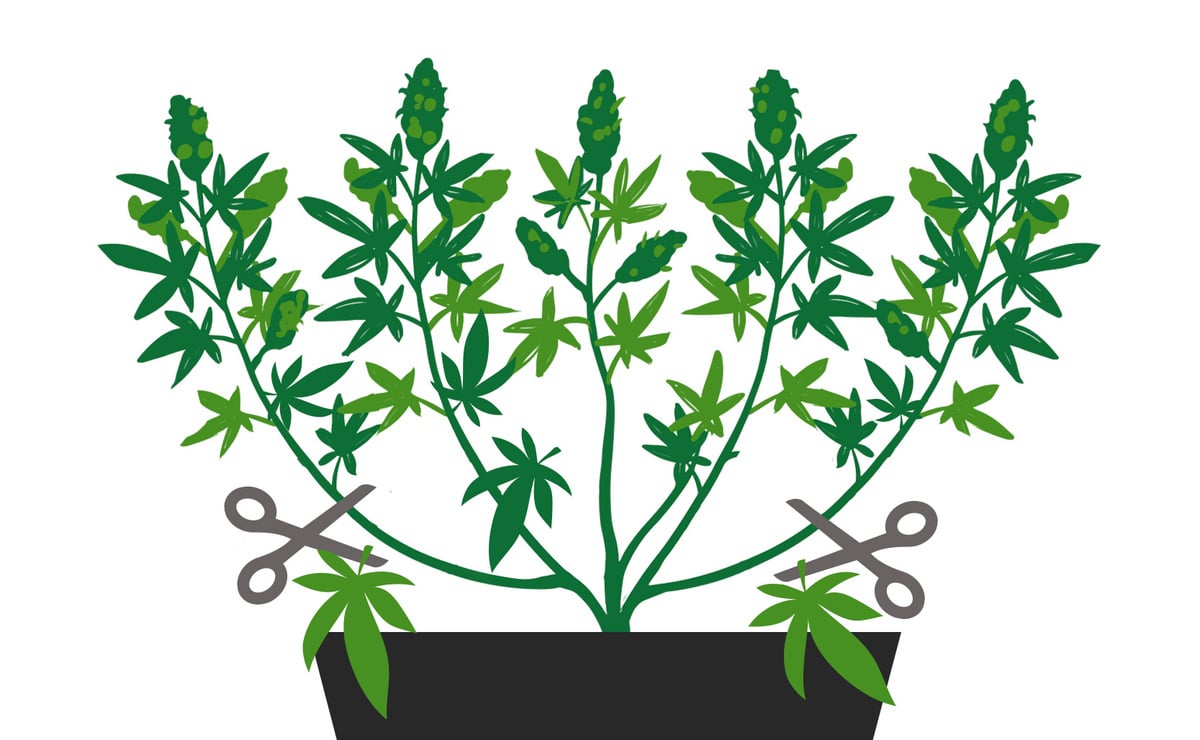
To avoid shocking your plants you should remove a couple of leaves or branches every 3-4 days to let your plant recover if done correctly you can achieve good results by performing it less than 4 times during the whole vegetative stage. This technique is commonly referred to as “lollipopping”, and is named as such because as you remove these lower branches you will be left with a plant that, at least slightly, resembles a lollipop. For optimal results, we usually recommend combing this technique with the “mainlining” method.
For more info on all of this head over to our handy guide! These are advanced cultivation methods, so if you are new to the growing game then it may be best to start off with some techniques that are a little less invasive. If you’re new to growing and don’t want to do any of that yet you don’t have to worry, the popcorn buds will have the same potency, smell, flavor, and high just won’t be as dense as the other flowers.
4. What to Do With Popcorn Buds?
Popcorn buds may be small and airy but they’re still good. Being a flower from the same plant as the more dense buds, they have the same potency, smell, flavor, and high, just aren’t dense like the others.
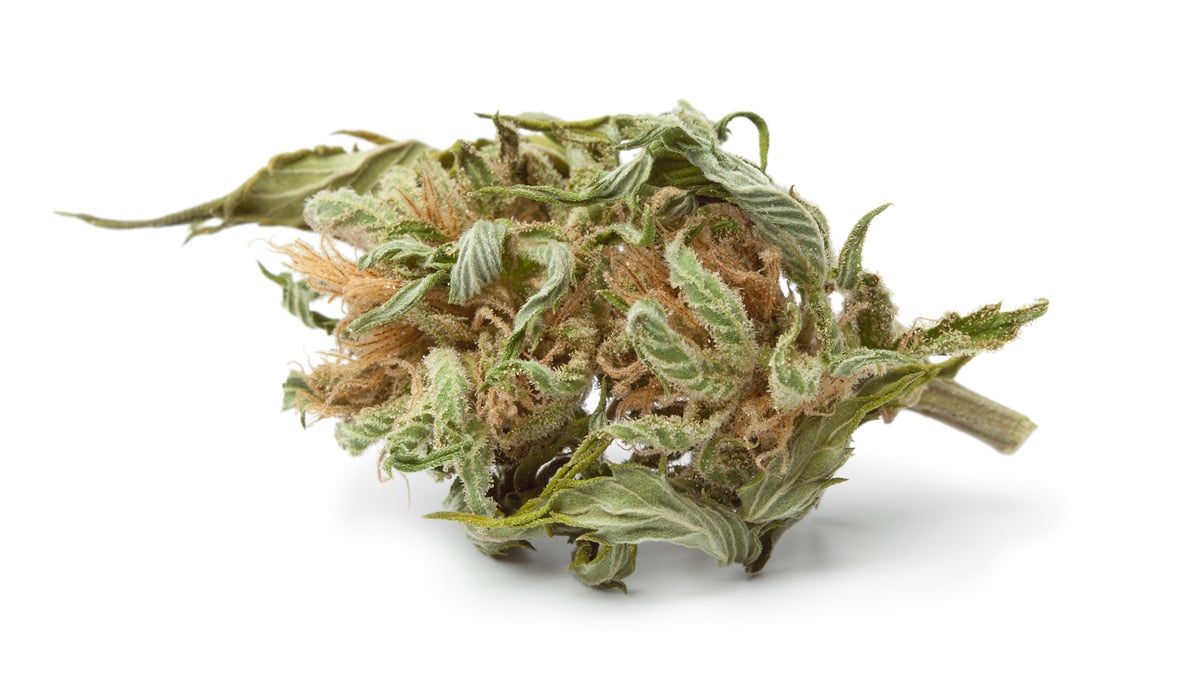
This means you can still smoke or vaporize them normally like you would with denser buds. More experienced growers usually perform training to avoid them but when buds underdevelop anyway we usually make concentrates with them, like hashish or rosin. But really, the world is your oyster when it comes down to what to actually do with your popcorn buds. Many growers just add them in with their trim bim, as their bag appeal is less than what many consumers are looking for. We like to use them to make cannabutter for use in the creation of delicious edibles! You can also substitute the butter for good quality coconut oil to make a vegan-friendly option.
5. In Conclusion
Popcorn buds are nothing more than undeveloped buds but they keep all the qualities of the rest of the buds except for their density. These buds can still be smoked and shouldn’t be a problem if you just started growing. As said above, they won’t go to waste as you can ultimately make hashish and edibles with them. If you’re a more experienced grower and want to achieve the biggest yield possible there are several ways to avoid popcorn buds. We recommend taking a look at our articles about pruning and low-stress and high-stress training.
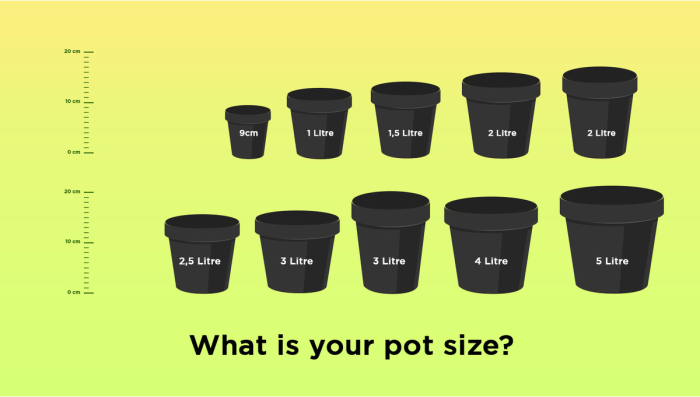







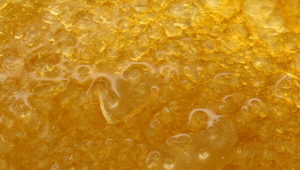
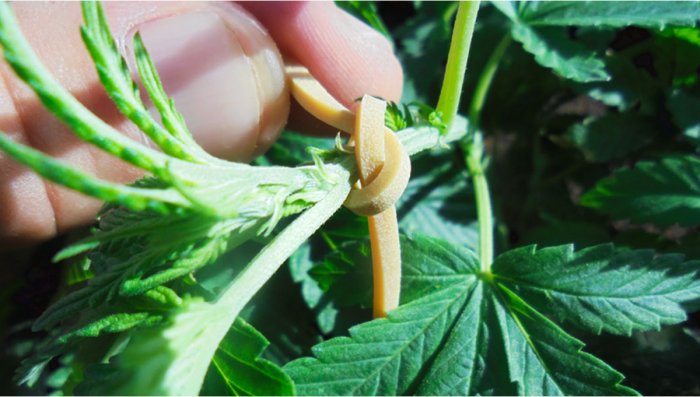

Comments